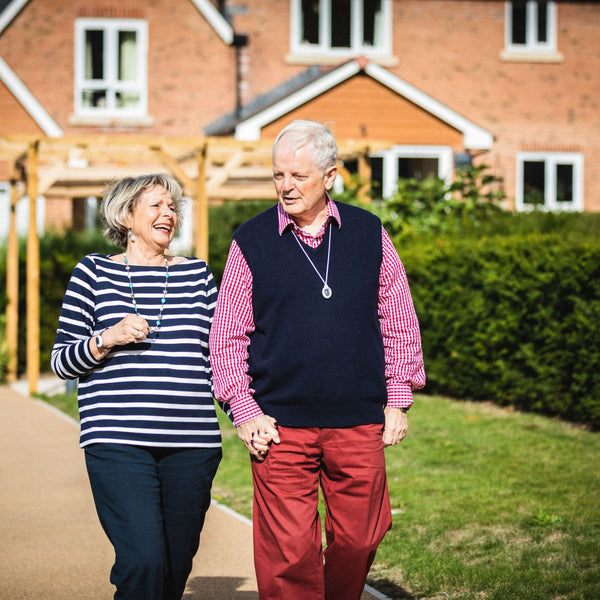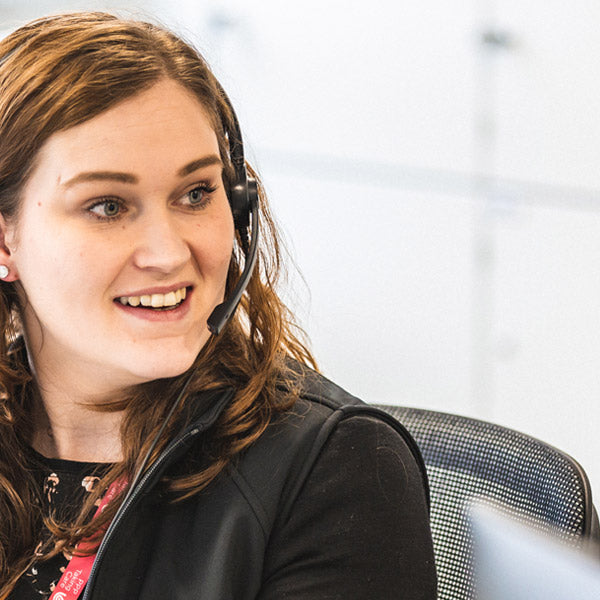We’ve heard some interesting predictions about 2027. Self-driving cars could be filling our streets. Elon Musk says that humans will be flying to Mars.
But closer to home we have other challenges. One of them is a big change to our telephone service, as the UK’s analogue system is being switched off. If you’re involved in telecare, that means planning for a very different kind of world.
Remember when people had to upgrade their old mobile phones? It’s a bit like that. We said goodbye to the clunky analogue mobile network, and moved to smaller phones that did more. It was the same when we moved to digital TV, allowing everyone to enjoy a crystal-clear picture. So this next move to digital is a good thing. It will allow us to improve telecare services, helping older people live safely at home for longer.
The benefits of digital telecare
Today’s telecare relies on the current phone network. It works using standalone devices in people’s homes, provided by businesses like ours. These are connected to dedicated monitoring systems and response centres. With digital technology, these devices at home won’t need to work alone. They can be linked to other services, and provide real-time information to family members, carers and healthcare experts.
Digital devices make it easier to collect and combine data. For example, carers and relatives today often have trouble joining-up the things they know. When did mum last have a visitor? Has she taken her new tablets? When is her next check-up at the hospital? Lots of different people have the answers, but not in one place. It’s not easy to share.
With digital tools, it becomes easier to work together. This could mean using a smartphone app so that carers and nurses can share what’s going on. With a few clicks, they can bring their knowledge together, without the clumsy paperwork. So we can do a better job of predicting illnesses, and give healthcare professionals a more rounded picture of their patient. Family members will find it easier to keep tabs on their loved one’s wellbeing.
Improvements in telecare devices
We also expect to see big improvements in devices like pendant alarms. Wearable technology (like GPS-enabled watches or shoes with elderly fall alarms) will become common. For night-time, there’s acoustic monitoring to trigger an alarm for unusual noise. Sensors can also be built into mattress pads, to keep an eye on sleep and snoring.
The challenges of analogue to digital telecare
The improvements come with some risks and challenges. Everyone involved in telecare will be moving away from something tried-and-trusted. Alarm receiving centres will need to be fully digital. The alarm units in our loved ones’ homes will need an upgrade. We’ll be working hard to make sure that services carry on without interruption.
For local authorities, we can see efficiency benefits. The ability to control devices remotely should keep costs down, as home visits become less necessary. New digital devices can also send different kinds of alarms and alerts to different people. That means that family and neighbours can sometimes step in, relying less on telecare providers. Cost savings like these will help to offset the cost of the transition.
Done properly, the move from analogue to digital means much more than replacing old technology. We’re confident that it will transform telecare. It will bring down the costs of domiciliary care and care home admissions. It will reduce the use of healthcare services, including hospital visits. At Taking Care, digital migration is at the forefront of our plans. So we can help you with this transformation.
It’s important to act now, and start planning your approach. This will avoid disruption and the risk of failed calls. It also means you’ll be well-placed to take advantage of all the good things that digital offers.
About Taking Care
At Taking Care, we’re working on the next generation of products and services to help people age well. We can help local authorities and care providers deliver a digital technology enabled care strategy. We can support their analogue to digital telecare transition.
Find out how we can share insights into technology-enabled care and help Local Authorities support the independent elderly through the digital telecare transition.




